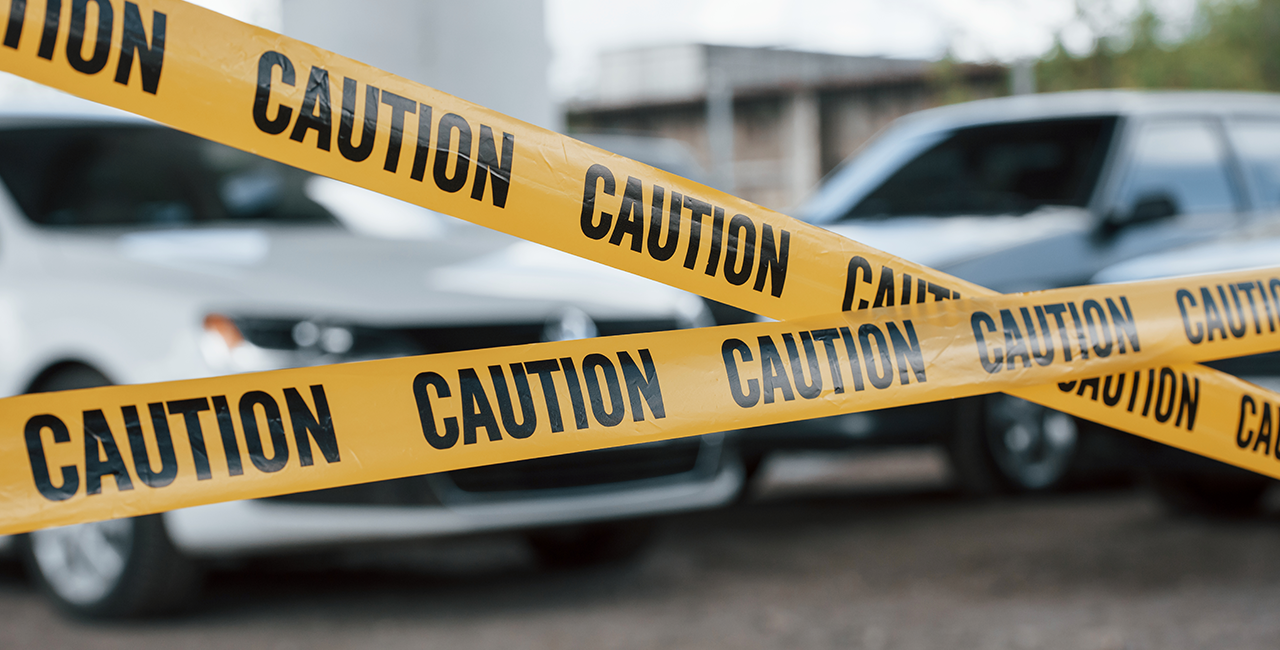How do you deal with an insurance adjuster after a car accident?
Car accidents are a very unfortunate reality of day-to-day shenanigans on the roads. These exist, ranging from just a simple scratch to a major collision.
After an accident caused by a car, one might have to undertake repairs for the car, medical treatment for themselves in case of injuries, and have to deal with several legal challenges. Car insurance plays an important role here.
A lot of people who get into such challenging times do not know how to deal with an insurance adjuster after a car accident.
Role of an Insurance Adjuster
According to the best car accident lawyer in Houston Tx, the insurance adjuster is one of the very prominent personalities that play a very important role in resolving your case. He/She is known to be the critical feature after an insurance claim is filed.
The insurance adjuster has some responsibilities that he has to take care of. These include:
- Investigating the Accident: The details of the accident are going to be reviewed by the adjuster. For this, an investigation can be carried out by searching and digging the accident scene, reading police reports, and interviewing witnesses.
- Assessing Vehicle Damage: The adjusters do this as this will help determine the damage caused to the vehicles involved. This is usually a physical check of the car.
- Estimation of Injuries: If claims are made on the injuries, the insurance adjuster reviews the medical reports and requests additional medical examinations.
- Negotiating the Settlements: After the adjuster has all the information they require, they will negotiate and settle the claim with the claimant.
Determination of Fault: The insurance adjusters have one of the very important roles, which is to determine the parties’ fault. This depends a lot on the policy details, the evidence collected, and the state laws.

Types of Insurance Adjusters
There are different types of insurance adjusters that can help you deal with different cases, depending on their expertise.
Independent Adjusters
These are individual business entities that work for many insurers. They are usually hired during periods of increased claim volumes, for example, following a disaster.
Company Adjusters
These adjusters work under the direct supervision of your insurer. Most of the claimants are seen dealing with this kind of adjuster who acts on behalf of the insurance company.
Public Adjusters
Public adjusters differ from the first two since they are approached directly by the claimant, unlike the insurance company. They act as your representatives during the claims process. Public adjusters are usually hired by people on complicated claims where they feel like they need an impartial evaluation of their situation.
Understanding the role of each type of adjuster and how they deal with claims is very crucial for the claimants to deal with their cases.

How to Deal with an Insurance Adjuster After a Car Accident – The Process
After an accident occurs, the initial immediate steps are taken. There comes the role of insurance and how it deals with different car accidents.
Adjuster’s Visit or Call
One of the major steps in the insurance adjustment is the interaction with the adjuster. It is essential to visit the adjuster fully prepared so that you are clear about your claim and can anticipate fruitful results.
Documentation
- Documentation is very important, as police reports and medical records give independent descriptions of the accident. It normally includes information concerning the involved parties, witness statements, as well as the officer’s report on the accident. Try to get hold of this report since it may provide crucial leads into facts of the matter. The medical bills also establish the injuries and help in quantifying the expenses for the claim.
- Request estimates for repairing your car from one or several competent auto mechanics. These should be specific, showing the cost of labor and materials. Find out what your compensation will be if your vehicle is considered totaled and the current market value of your car.
List of Damages
- Put down a detailed account of all the injuries incurred in the accident. Consider such subsequent injuries as those that resulted from it and are still giving pain and complications. When dealing with pain and suffering claims, documentation of these injuries’ effects on your daily life is crucial in most cases.
- Maintain records of any communication related to the accident, including telephone calls or letters with your insurance providers.
- Ensure that you organize your documents such that they are accessible whenever you address the adjuster.
Conversations with the Insurance Adjuster
Communication and proper conversation with the insurance adjuster are very important. Here is how you can have the most effective communication.
Do not let the situation get to you. A productive conversation is possible even for those who disagree on some issues if they are polite and respectful in communication.
- Be Clear and Concise: Provide clear and factual information. Avoid long, irrelevant details. Discuss the details of your injuries and damages directly related to the accident.
- Ask Questions: You cannot understand everything that is said; therefore, if you don’t understand, ask for clarification. Make sure you have understood all the adjuster’s questions and the issue of this claim process.
- Take Notes: Maintain notes on what was talked about, noting down the adjuster’s name, dates of conversation, and important points or decisions that were made.
Information to Share
In dealing with insurance adjusters, you need to know what you can share and what you are not. So, you need to share the information regarding facts and refrain from sharing personal opinions and some personal info. Let’s have a look.
You can share:
- Evidence
- Documentation
- Factual Information
You cannot share:
- Pre-existing injuries
- Financial information
- Personal speculations
- Amounts for settlements.
Negotiate your Claim
To maximize the compensation, you must negotiate an insurance claim effectively so that you get a fair settlement in the end. The process itself must involve a combination of strategy, patience, and knowledgeable decision-making.
To deal with the tactics of insurance, one needs to negotiate properly.
- A typical starting point for the negotiations is the first offer by the insurance adjuster. It is generally lower than what they are actually willing to pay. Kindly reject the idea and give reasons for its inappropriateness.
- Leverage your gathered documents (medical records, repair estimates, wage loss documentation) to support your counter-offer. The more significant number of evidence you have, the higher the power in negotiations with you.
- If you feel like the adjuster is slow in responding, then it is best to use the deadline to take prompt action. Try to be reasonable and allow enough time for a response.
When to Seek Legal Advice
A lawyer has the ability to negotiate an offer that is high and reasonable for you when an offer from the insurance company is less than adequate to cover all your losses or seems unfairly low.
A trained attorney hired from Mokaram Law Firm can also assist you in challenging the unfair denial of your claim, and advocate for your rights.
In case you are made to accept a fast offer that is not suitable for you, an attorney can assist in the evaluation of the fairness of that offer.
When it comes to presenting an objective assessment of a case, the role of the attorney must not be underestimated.
Contact Mokaram Law Firm Now!
Insurance companies know that they will be in for tough negotiations since attorneys are good at knowing how they operate. The lawyers at Mokaram Law Firm are competent enough to help you proceed according to all necessary requirements and limits in law. Dial (281) 609-9224 to book a consultation to help you get through your case. Hiring a professional will provide you with all the peace of mind you seek.
Recent Posts
-
 30 Jan 2025Washington, D.C. Plane Crash: Investigation Underway Following Collision with Black Hawk Helicopter
30 Jan 2025Washington, D.C. Plane Crash: Investigation Underway Following Collision with Black Hawk Helicopter -
 22 Jan 2025How Do People Who Text and Drive Get Punished in Different States?
22 Jan 2025How Do People Who Text and Drive Get Punished in Different States? -
 22 Jan 2025Do Pedestrians Have the Right of Way?
22 Jan 2025Do Pedestrians Have the Right of Way? -
 20 Jan 2025Are Radar Detectors Legal? Everything You Need to Know About Radar Detector Laws
20 Jan 2025Are Radar Detectors Legal? Everything You Need to Know About Radar Detector Laws -
 20 Jan 2025What Age Can You Get Your Driver's License in Texas?
20 Jan 2025What Age Can You Get Your Driver's License in Texas? -
 07 Jan 2025Legal Help for Families Affected by Jeju Air Flight 2216
07 Jan 2025Legal Help for Families Affected by Jeju Air Flight 2216 -
 17 Dec 2024Is Lane Splitting Legal in Texas?
17 Dec 2024Is Lane Splitting Legal in Texas? -
 17 Dec 2024Can Police Write Tickets in a Car Accident? | Legal Insights
17 Dec 2024Can Police Write Tickets in a Car Accident? | Legal Insights -
 01 Dec 2024What is the Minimum Age to Get a Tattoo in the USA?
01 Dec 2024What is the Minimum Age to Get a Tattoo in the USA? -
 29 Nov 2024Is It Really Illegal to Drive Barefoot? Debunking Common Myths
29 Nov 2024Is It Really Illegal to Drive Barefoot? Debunking Common Myths -
 29 Nov 2024Is It Illegal to Get Someone Drunk?
29 Nov 2024Is It Illegal to Get Someone Drunk? -
 29 Nov 2024Is it Illegal to Drive With Headphones? Understanding the Risks and Laws
29 Nov 2024Is it Illegal to Drive With Headphones? Understanding the Risks and Laws




